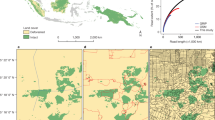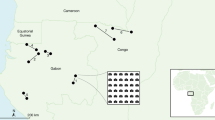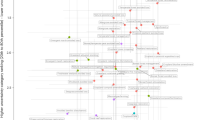Abstract
The release of classified documents in the past years have offered a rare glimpse into the opaque world of tax havens and their role in the global economy. Although the political, economic and social implications related to these financial secrecy jurisdictions are known, their role in supporting economic activities with potentially detrimental environmental consequences have until now been largely ignored. Here, we combine quantitative analysis with case descriptions to elaborate and quantify the connections between tax havens and the environment, both in global fisheries and the Brazilian Amazon. We show that while only 4% of all registered fishing vessels are currently flagged in a tax haven, 70% of the known vessels implicated in illegal, unreported and unregulated fishing are, or have been, flagged under a tax haven jurisdiction. We also find that between October 2000 and August 2011, 68% of all investigated foreign capital to nine focal companies in the soy and beef sectors in the Brazilian Amazon was transferred through one, or several, known tax havens. This represents as much as 90–100% of foreign capital for some companies investigated. We highlight key research challenges for the academic community that emerge from our findings and present a set of proposed actions for policy that would put tax havens on the global sustainability agenda.
This is a preview of subscription content, access via your institution
Access options
Access Nature and 54 other Nature Portfolio journals
Get Nature+, our best-value online-access subscription
$29.99 / 30 days
cancel any time
Subscribe to this journal
Receive 12 digital issues and online access to articles
$119.00 per year
only $9.92 per issue
Buy this article
- Purchase on Springer Link
- Instant access to full article PDF
Prices may be subject to local taxes which are calculated during checkout


Similar content being viewed by others
Change history
17 August 2018
An earlier version of the Supplementary Information was mistakenly uploaded when this Perspective was published, and was live until 14 August 2018, when the correct version was uploaded.
References
Zucman, G. The Hidden Wealth of Nations: The Scourge of Tax Havens (Univ. Chicago Press, Chicago, 2015).
Béné, C. et al. Contribution of fisheries and aquaculture to food security and poverty reduction: assessing the current evidence. World Dev. 79, 177–196 (2016).
Lenton, T. M. et al. Tipping elements in the Earth's climate system. Proc. Natl Acad. Sci. USA 105, 1786–1793 (2008).
Roberts, S. in Money, Power and Space (eds Corbridge, S., Martin, R. & Thrift, N.) 91–115 (Blackwell, Oxford, 1994).
Haberly, D. & Wojcik, D. Culprits or bystanders? Offshore jurisdictions and the global financial crisis. J. Financ. Regul. 3, 233–261 (2017).
Christensen, J., Shaxson, N. & Wigan, D. The finance curse: Britain and the world economy. Brit. J. Polit. Int. Rel. 18, 255–269 (2016).
Harmful Tax Competition: An Emerging Global Issue (OECD, Paris, 1998).
Reuter, P. Draining Development? Controlling Flows of Illicit Funds from Developing Countries (World Bank, Washington DC, 2012).
U.S. Vulnerabilities to Money Laundering, Drugs, and Terrorist Financing: HSBC Case History (U.S. Senate Permanent Subcommittee on Investigations, Washington DC, 2012).
Sharman, J. Offshore and the new international political economy. Rev. Int. Polit. Econ. 17, 1–19 (2010).
Harrington, B. Capital Without Borders: Wealth Managers and the One Percent (Harvard Univ. Press, Cambridge, 2016).
Gravelle, J. G. Tax Havens: International Tax Avoidance and Evasion (Congressional Research Service, Washington DC, 2015).
Cobham, A., Janský, P. & Meinzer, M. The Financial Secrecy Index: shedding new light on the geography of secrecy. Econ. Geogr. 91, 281–303 (2015).
Coe, N. M., Lai, K. P. Y. & Wójcik, D. Integrating finance into global production networks. Reg. Stud. 48, 761–777 (2014).
Garcia-Bernardo, J., Fichtner, J., Heemskerk, E. M. & Takes, F. W. Uncovering offshore financial centers: conduits and sinks in the global corporate ownership network. Sci. Rep. 7, 6246 (2017).
Seabrooke, L. & Wigan, D. The governance of global wealth chains. Rev. Int. Polit. Econ. 24, 1–29 (2017).
Haberly, D. & Wójcik, D. Tax havens and the production of offshore FDI: an empirical analysis. J. Econ. Geogr. 15, 75–101 (2015).
World Investment Report 2016. Investor Nationality: Policy Challenges (United Nations Conference on Trade and Development, Geneva, 2016).
The State of World Fisheries and Aquaculture 2016: Contributing to Food Security and Nutrition for All (FAO, Rome, 2016).
Agnew, D. J. et al. Estimating the worldwide extent of illegal fishing. PLoS ONE 4, e4570 (2009).
UNGA Resolution A/RES/71/123 (United Nations General Assembly, New York, 2016).
Griggs, L. & Lugten, G. Veil over the nets (unravelling corporate liability for IUU fishing offences). Mar. Policy 31, 159–168 (2007).
Crona, B. I. et al. Masked, diluted and drowned out: how global seafood trade weakens signals from marine ecosystems. Fish Fish. 17, 1175–1182 (2016).
Österblom, H. et al. Transnational corporations as ‘keystone actors’ in marine ecosystems. PLoS ONE 10, e0127533 (2015).
Evading the Net: Tax Crime in the Fisheries Sector (Organisation for Economic Co-operation and Development, Paris, 2013).
Gianni, M. & Simpson, W. The Changing Nature of High Seas Fishing: How Flags of Convenience Provide Cover for Illegal, Unreported and Unregulated Fishing (Australian Department of Agriculture, Fisheries and Forestry, International Transport Workers’ Federation, WWF International, 2005).
Flothmann, S. et al. Closing loopholes: getting illegal fishing under control. Science 328, 1235–1236 (2010).
Miller, D. D. & Sumaila, U. R. Flag use behavior and IUU activity within the international fishing fleet: refining definitions and identifying areas of concern. Mar. Policy 44, 204–211 (2014).
Chasing Red Herrings: Flags of Convenience and the Impact on Fisheries Crime Law Enforcement (North Atlantic Fisheries Intelligence Group and INTERPOL, Oslo, 2017).
Österblom, H., Sumaila, U. R., Bodin, Ö., Sundberg, J. H. & Press, A. J. Adapting to regional enforcement: fishing down the governance index. PLoS ONE 5, e12832 (2010).
Wilson, K. & Cabra, M. Looting the Seas: Spain Doles out Millions in Aid Despite Fishing Company Records (The Center for Public Integrity, Washington DC, 2011).
Burgen, S. Six arrested in Spain on charges of illegal fishing of protected species. The Guardian (9 March 2016).
Fishing Vessels Finder (FAO, accessed 7 September 2017); http://www.fao.org/figis/vrmf/finder/search/#.Wjve7FQ-eRs.
Combined IUU Vessel List (Trygg Mat Tracking, accessed 7 September 2017); http://iuu-vessels.org/iuu/.
Nelleman, C. et al. (eds) The Rise of Environmental Crime: A Growing Threat to Natural Resources, Peace, Development and Security A UNEP-INTERPOL Rapid Response Assessment (United Nations Environment Programme and RHIPTO Rapid Response–Norwegian Center for Global Analyses: Nairobi, 2016).
Scheffer, M. et al. Creating a safe operating space for iconic ecosystems. Science 347, 1317–1319 (2015).
Richardson, B. J. Equator principles: the voluntary approach to environmentally sustainable finance. Eur. Environ. Law Rev. 14, 280–290 (2005).
Nepstad, D. et al. Slowing Amazon deforestation through public policy and interventions in beef and soy supply chains. Science 344, 1118–1123 (2014).
Gibbs, B. H. K. et al. Brazil’s Soy Moratorium: supply chain governance is needed to avoid deforestation. Science 347, 377–378 (2015).
Coordinated Direct Investment Survey (International Monetary Fund, accessed 22 March 2017); http://data.imf.org/?sk=40313609-F037-48C1-84B1-E1F1CE54D6D5.
Fichtner, J. The anatomy of the Cayman Islands offshore financial center: Anglo-America, Japan, and the role of hedge funds. Rev. Int. Polit. Econ. 23, 1034–1063 (2016).
Financial Secrecy Index: Narrative Report on Cayman Islands (Tax Justice Network, Chesham, 2015).
Desai, M. A. The decentering of the global firm. World Econ. 32, 1271–1290 (2009).
orbis (Bureau Van Dijk, 2017); https://orbis.bvdinfo.com.
Dalla-Nora, E. L., de Aguiar, A. P. D., Lapola, D. M. & Woltjer, G. Why have land use change models for the Amazon failed to capture the amount of deforestation over the last decade? Land Use Policy 39, 403–411 (2014).
Hanlon, M. & Slemrod, J. What does tax aggressiveness signal? Evidence from stock price reactions to news about tax shelter involvement. J. Public Econ. 93, 126–141 (2009).
Hanlon, M. & Heitzman, S. A review of tax research. J. Account. Econ. 50, 127–178 (2010).
Desai, M. A., Foley, C. F. & Hines, J. R. Economic Effects of Regional Tax Havens NBER Working Paper No. 10806 (National Bureau of Economic Research, Cambridge, 2004).
Dharmapala, D. What problems and opportunities are created by tax havens? Oxf. Rev. Econ. Policy 24, 661–679 (2008).
Liu, J. et al. Framing sustainability in a telecoupled world. Ecol. Soc. 18, 26 (2013).
Galaz, V., Gars, J., Moberg, F., Nykvist, B. & Repinski, C. Why ecologists should care about financial markets. Trends Ecol. Evol. 30, 571–580 (2015).
Gardner, T.A. et al. Transparency and sustainability in global commodity supply chains. World Dev. https://doi.org/10.1016/j.worlddev.2018.05.025 (2018).
Meyfroidt, P., Lambin, E. F., Erb, K.-H. & Hertel, T. W. Globalization of land use: distant drivers of land change and geographic displacement of land use. Curr. Opin. Environ. Sustain. 5, 438–444 (2013).
Coady, D., Parry, I., Sears, L. & Shang, B. How large are global fossil fuel subsidies? World Dev. 91, 11–27 (2017).
Government Subsidies to the Global Financial System: A Preliminary Exploration Inquiry Working Paper 16/11 (United Nations Environment Programme, Geneva, 2016).
Action Plan on Base Erosion and Profit Shiſting (OECD, Paris, 2013).
Acknowledgements
The authors acknowledge support from the Erling-Persson Family Foundation through the Global Economic Dynamics and the Biosphere programme (GEDB) at the Royal Swedish Academy of Sciences, the Futura Foundation, Vinnova (Earth System Finance), Mistra Financial Systems (MFS), the Nippon Foundation (Nereus Program – Predicting the Future Oceans) and the Foundation for Strategic Environmental Research (Mistra) through the Stockholm Resilience Centre (Stockholm University). J.F. acknowledges funding from the European Research Council (ERC) under the European Union’s Horizon 2020 research and innovation programme (grant no. 638946) for the CORPNET project at the University of Amsterdam. We thank E. Sundström (Stockholm Resilience Centre, Stockholm University) and A. Causevic (Global Economic Dynamics and the Biosphere programme (GEDB) at the Royal Swedish Academy of Sciences) for their assistance in creating the database for the Amazon case study.
Author information
Authors and Affiliations
Contributions
V.G., B.C., A.D., J.-B.J. and H.Ö. designed research. V.G., B.C. and A.D. collected and analysed Amazon data. J.-B.J. and H.Ö. collected and analysed global fisheries data and cases. V.G., B.C., A.D., J.-B.J. and H.Ö. wrote the paper with contributions from J.F.
Corresponding author
Ethics declarations
Competing interests
H.Ö., J.-B.J., B.C. and A.D provide scientific support to companies in the seafood sector through the Seafood Business for Ocean Stewardship (SeaBOS) initiative (http://keystonedialogues.earth/). Remaining authors declare no competing interests.
Additional information
Publisher’s note: Springer Nature remains neutral with regard to jurisdictional claims in published maps and institutional affiliations.
Supplementary Information
Supplementary Information
Appendices 1-4, including Supplementary Methods, Supplementary Tables S1-S3 and Supplementary References
Rights and permissions
About this article
Cite this article
Galaz, V., Crona, B., Dauriach, A. et al. Tax havens and global environmental degradation. Nat Ecol Evol 2, 1352–1357 (2018). https://doi.org/10.1038/s41559-018-0497-3
Received:
Accepted:
Published:
Issue Date:
DOI: https://doi.org/10.1038/s41559-018-0497-3
This article is cited by
-
Ecopreneurs and agricultural waste management
Journal of Global Entrepreneurship Research (2022)
-
Deep aspirations: towards a sustainable offshore Blue Economy
Reviews in Fish Biology and Fisheries (2022)
-
Biodiversity targets will not be met without debt and tax justice
Nature Ecology & Evolution (2021)
-
Understanding the role of illicit transactions in land-change dynamics
Nature Sustainability (2020)
-
Global targets that reveal the social–ecological interdependencies of sustainable development
Nature Ecology & Evolution (2020)



